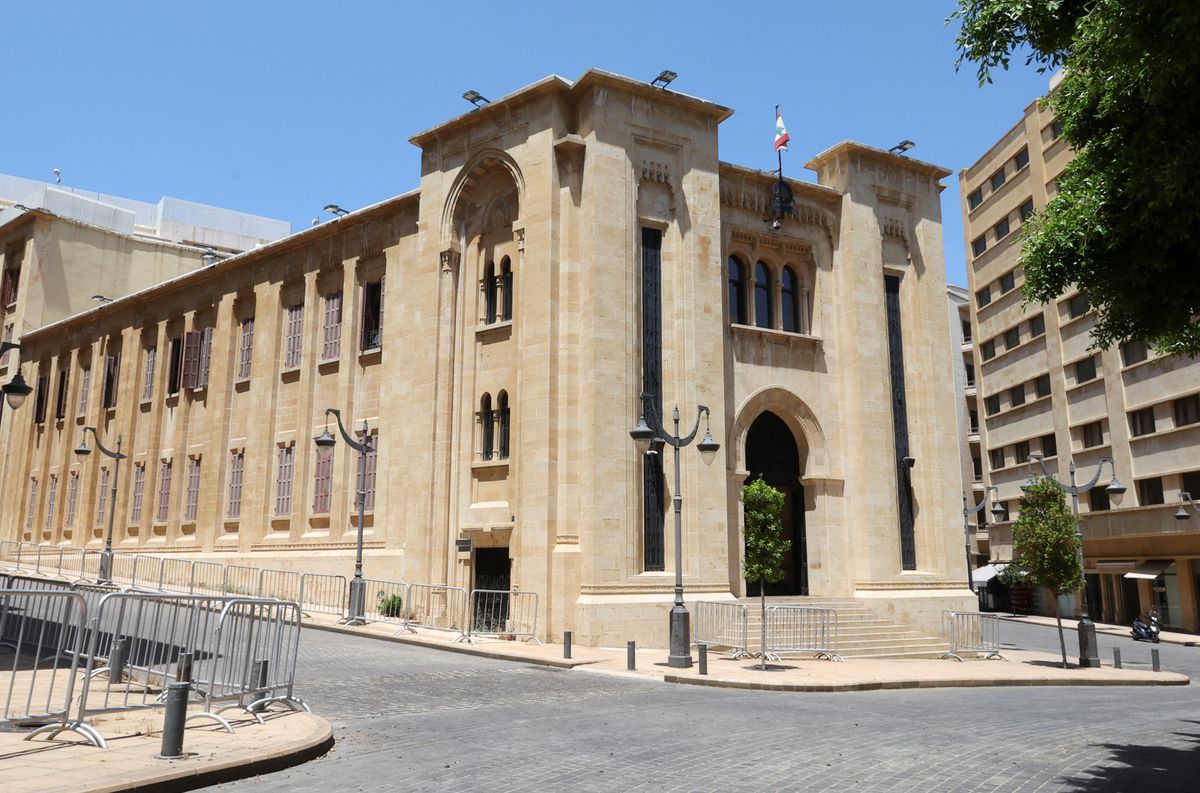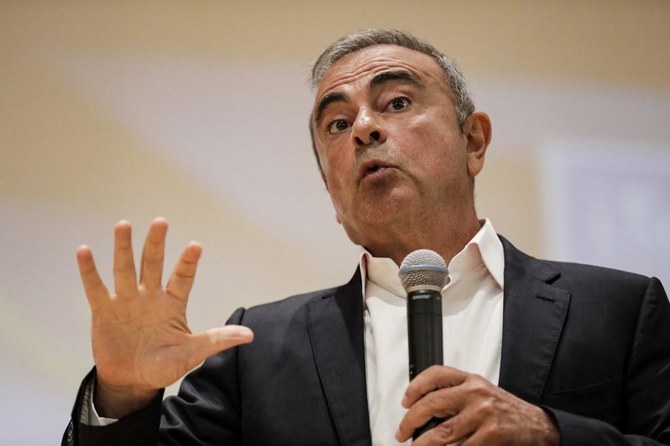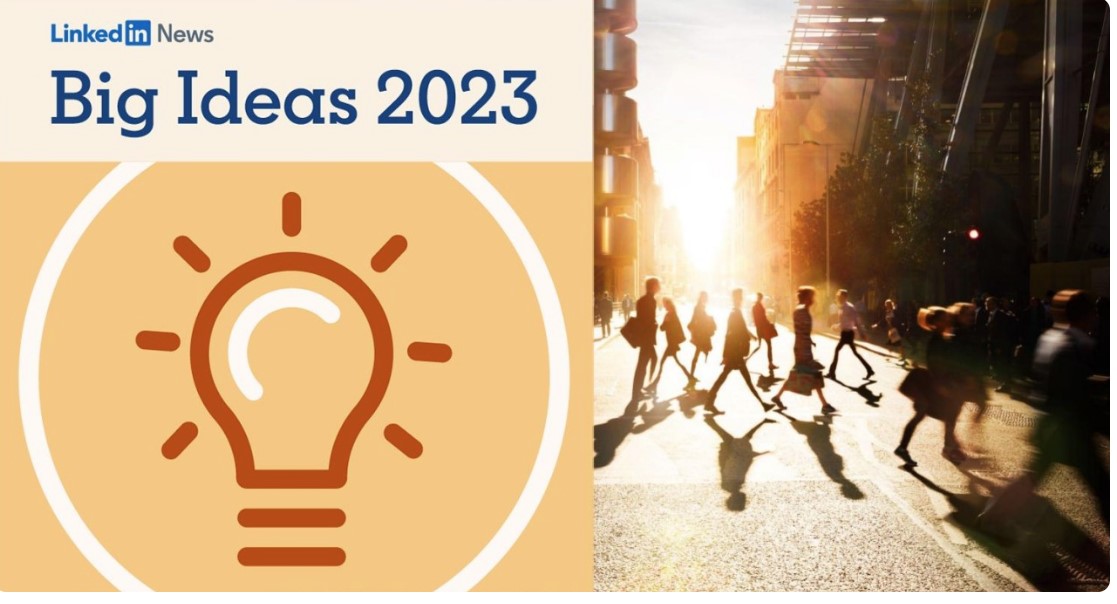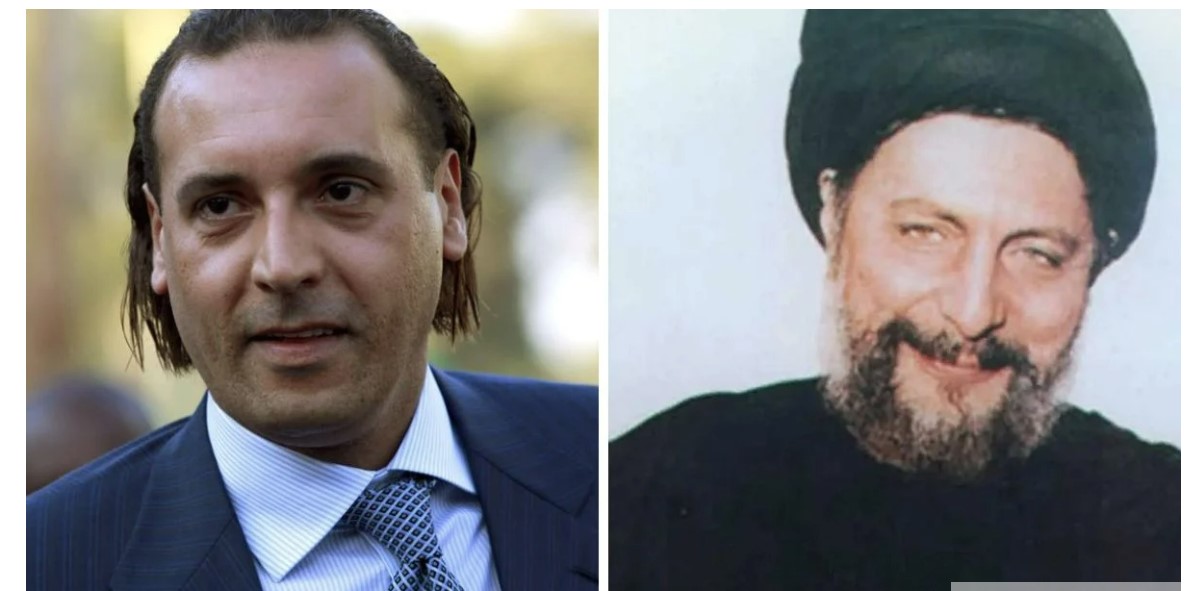By Jordyn Dahl, Editor at LinkedIn News — Groundwater extraction to provide communities with drinking water and irrigation has pulled so much moisture out of the earth, it’s tilting the planet’s axis. The Earth’s axis shifted about 31 inches to the east over the course of about two decades — roughly 1.7 inches a year […]

by Alexander Langlois — nationalinterest.org — Lebanon’s political problems and solutions have a strong tendency of repeating. This reality has become increasingly apparent in the ongoing failure to elect a new president—an arena where the international community is once again making some significant moves to effectively save the country. Indeed, as Beirut continues to bicker over candidates and other long-running feuds, the country’s political elites likely expect and hope to rely on their international backers to resolve strictly Lebanese problems. While undesirable, international action likely constitutes the only path toward a new government in Lebanon today given current political obstacles. Recent French efforts are at the forefront of international action in Lebanon today. French president Emmanual Macron recently dispatched his new envoy for Lebanon—former Foreign and Defense Minister Jean-Yves Le Drian—to meet with Lebanese elites and encourage constructive dialogue on the presidential file. Le Drian is a major political actor in France, carrying substantial international influence and skill, which reflects Paris’s seriousness in resolving Beirut’s gridlock. The envoy described his trip to Lebanon as “a consultative mission … to ensure the country moves on from the political impasse.” Yet interestingly, Le Drian expressed that he would not push for any candidate in his visit—including a third-party option that could lead to consensus between Lebanon’s major political blocs. This comes as a surprise given Paris has privately supported Hezbollah-backed Suleiman Frangieh for months following its public-facing support for reformist elements in recent years. Whether Le Drian’s comments reflect another shift in France’s position remains to be seen, although Frangieh’s viability is certainly questionable at best following former finance minister and senior International Monetary Fund (IMF) official Jihad Azour’s strong showing in the last presidential vote on June 14.
Le Drian took this message to each of the major Lebanese political actors, meeting with the leaders of each of the leading political parties and independent reformist camp, Maronite patriarch Bechara Boutros al-Rahi, Parliamentary Speaker Nabih Berri, and Prime Minister Najib Mikati. He also met with General Joseph Aoun—the head of the Lebanese Armed Forces (LAF) and a rumored presidential favorite amongst many stakeholders working on the Lebanon file. Some of Lebanon’s political elites have made clear that international pressure is unnecessary. Samir Geagea, head of the conservative Lebanese Forces (LF) party, did not mince words following his meeting with Le Drian: “The solution doesn’t need French, American or Iranian intervention … What is needed is a sovereign domestic decision.” Free Patriotic Movement (FPM) head Gebran Bassil expressed similar sentiments in his meeting with Le Drian as well. Both are major Christian parties in Lebanon that are usually opposed to each other, until recently.
by Sarah Maisey — the nationalnews.com — Taking to social media, the multi-award-winning singer, composer and actor announced he would be performing in the Lebanese capital on August 19. Diab has been on the music circuit since the early 1980s, and has earned a huge following and won multiple accolades. His 2014 album Shoft El […]
(Reuters) – The Financial Action Task Force’s FATF international financial crime watchdog did not put Lebanon on its “grey list” of countries facing special scrutiny according to a statement on Friday after a preliminary mutual assessment had raised concerns it would be. Three sources familiar with the matter told Reuters in May that Lebanon was […]
by AFP — AIN ZHALTA, Lebanon: Lebanon’s biggest Druze party on Sunday chose Taymur Jumblatt, 41, to succeed his father as leader of the small but influential community in the country’s power-sharing system. Almost 2,000 supporters gathered in Ain Zhalta, in the Druze heartland of the Chouf mountains, where members of the Progressive Socialist Party […]

BASSEM MROUE — BEIRUT (AP) — Carlos Ghosn said Friday that the $1 billion lawsuit he recently filed against Nissan and others is just the beginning of his fight. The former Nissan CEO said during an interview with The Associated Press in Beirut that had he been an American citizen filing a lawsuit in the United States, “I would not be asking for $1 billion, but for much more,” given his suffering. Ghosn led Japanese automaker Nissan for two decades, rescuing it from near-bankruptcy, before he was arrested in Japan in November 2018 on charges of breach of trust, misusing company assets for personal gains and violating securities laws by not fully disclosing his compensation. He fled Japan in December 2019 for Lebanon where he has lived since. Ghosn is wanted in Japan and France. Since he fled to Lebanon, Beirut has received three notices from Interpol based on arrest warrants for him from those countries. In France, he is facing a number of legal challenges, including tax evasion and alleged money laundering, fraud and misuse of company assets while at the helm of the Renault-Nissan alliance. Lebanon has no extradition treaty with Japan and does not extradite its citizens. Ghosn has French, Brazilian and Lebanese citizenship.
Ghosn was kept in solitary confinement in Japan for months without being allowed to speak with his wife. He has said he fled the country fearing he would have no chance of a fair trial. Ghosn said it took him more than three years to file the lawsuit because he wanted it to be as solid as possible based on evidence, on facts, (and) on witnesses.” He added that “our intention is to win it, so in order to win it, it has to be substantiated by a lot of facts. That’s why it took a lot of time.” A hearing date in the case by Lebanon’s prosecution is set for Sept. 18. Half of the money sought by the 69-year-old Ghosn is for damages, he said, while the other half is for compensation including salary, retirement funds and stock options. Ghosn is also seeking monetary compensation from a Nissan affiliate based in Lebanon, as well as entities that took part in the investigation leading up to his arrest and those that obtained documents and computers from his homes. When contacted by the AP in Tokyo for comment on the lawsuit, a Nissan official said: “We will not be commenting.”

by Ashton Jackson — cnbc.com — It may be hard to believe that Austin Russell, the world’s youngest self-made billionaire, has anything in common with others his age — but he insists that he does. Russell, 28, has an estimated net worth of $1.6 billion, due to the performance of his Orlando, Florida-based tech startup Luminar Technologies, which currently has a market cap of $2.4 billion. The company, which Russell founded 11 years ago as a teenager, develops hardware and software meant to power self-driving cars. Very few teenagers — or people in their 20s or 30s, for that matter — can launch and sustain that type of business. A Thiel Fellowship helped, giving Russell $100,000 to drop out of Stanford University and grow his company full-time.
But rather than focusing on technological expertise or business acumen, Russell credits his journey so far to two traits common among younger generations: energy and passion. “People in their 20s have a lot of great energy,” Russell tells CNBC Make It. “They put a lot of passion [into] things and I’m certainly no exception to that. I probably take it to the extreme, and that’s very meaningful.” “I was like 16, 17 years old where I said … ‘I have this vision of creating a new type of laser system that will allow cars to be able to drive themselves. And we’re going to beat out the Googles of this world, and all the major automakers, at their development efforts they’re going to put into this,'” Russell told Forbes in 2021, recalling the pitch he gave investors as a teenager. “I guess, I did memorize the periodic table — I think I was around 2 or so,” he told CNBC Make It in 2018. “I was just obsessed with learning certain things … just independently learning and understanding a lot of new types of scientific fields.”

BASSEM MROUE — BEIRUT (AP) — A son of late Libyan leader Moammar Gadhafi was briefly taken to hospital this week after his health deteriorated nearly three weeks into a hunger strike to protest his detention without trial in Beirut, a person familiar with the case said Thursday. The health of Hannibal Gadhafi, who has been only drinking small amounts of water, deteriorated on Wednesday the person said, speaking on condition of anonymity because of the sensitivity of the case. Gadhafi, who started his hunger strike on June 3, was taken to Beirut’s Hotel-Dieu de France hospital on Wednesday after suffering a drop in blood pressure and inflammation in the spine. Gadhafi was given serum, antibiotics and food supplements and after his health stabilized he was taken back to the jail where he is held in Beirut, the person said. A doctor checked on Gadhafi in his cell on Thursday and he is in stable condition, the person said. He had been suffering back pain due to being held in a small room where he cannot move freely or exercise.
Hannibal Gadhafi has been detained in Lebanon since 2015 after he was briefly kidnapped from neighboring Syria, where he had been living as a political refugee. He was abducted by Lebanese militants demanding information on the whereabouts of prominent Lebanese Shiite cleric Moussa al-Sadr, who went missing in Libya 45 years ago. Lebanese police later announced it had collected Hannibal from the northeastern city of Baalbek where he was being held. He has been detained in a Beirut jail without trial since then. The disappearance of al-Sadr in 1978 has been a long-standing sore point in Lebanon. The cleric’s family believes he may still be alive in a Libyan prison, though most Lebanese presume al-Sadr is dead. He would be 94 years old.
By Saundra Latham, Editor at LinkedIn News — Soon, you may be able to catch your favorite HBO show on … Netflix? Warner Bros. Discovery is in talks to license certain original HBO programs to Netflix, according to various outlets, including Deadline. The arrangement would “mark the first time in nearly a decade” HBO content […]

BEIRUT – By Bassem Mroue — (AP) — Auto tycoon Carlos Ghosn has filed a $1 billion lawsuit against Nissan and about a dozen individuals in Beirut over his imprisonment in Japan and what he says is misinformation spread against him, Lebanese officials said Tuesday. According to the officials, Ghosn’s lawsuit accuses Nissan and the individuals of defamation and of “fabricating charges” against him, which eventually put him behind bars in Japan. The lawsuit was filed last month, the judicial officials said, speaking on condition of anonymity to discuss the case. The officials did not identify the individuals that Ghosn is accusing. Ghosn was arrested in Japan in November 2018 on charges of breach of trust, misusing company assets for personal gains and violating securities laws by not fully disclosing his compensation. According to Judge Sabbouh Suleiman, who is at the Beirut’s prosecutor’s office, a hearing date in the case was set for September.
The judicial officials who spoke to The Associated Press said that Nissan and the accused individuals are expected to send representatives to Beirut or name a Lebanese lawyer to represent them. The 69-year-old Ghosn, who for two decades was the head of Nissan and Renault, has repeatedly said he is innocent. In December 2019, he jumped bail in Japan in a daring escape by hiding in a box spirited aboard a private jet out of the country. Prosecutors in Japan have charged three Americans with helping Ghosn escape the country. He now lives in Lebanon, which has no extradition treaty with Japan and does not extradite its citizens. Renault and Nissan have both been distancing themselves from the Ghosn scandal. Ghosn has citizenship in Lebanon, France and Brazil.



